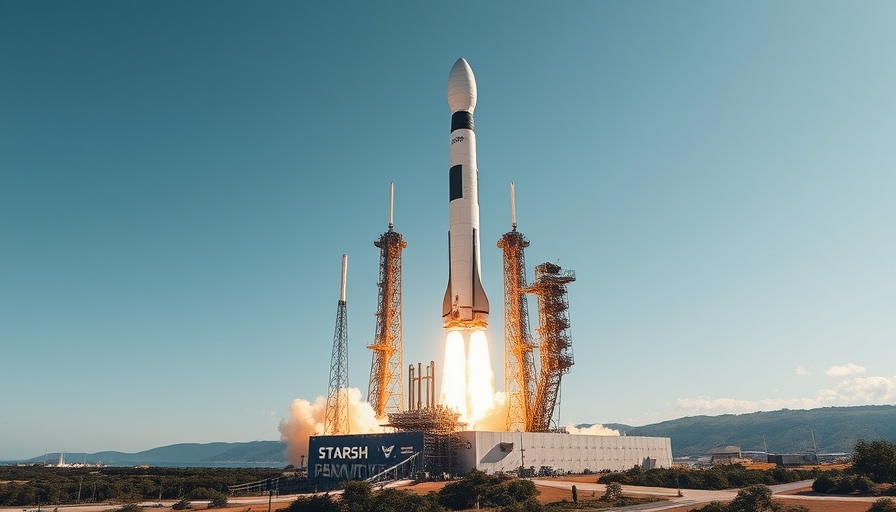
Revolutionizing Military Logistics: A New Age of Space Cargo Transportation
The U.S. Air Force is taking a bold leap into the future of military logistics by partnering with tech giants Blue Origin and Anduril to study innovative ways to transport cargo from orbit to Earth. This initiative, part of the Rocket Experimentation for Global Agile Logistics (REGAL) program, aims to utilize commercial, reusable rocket technology to make rapid deliveries globally.
Understanding the REGAL Program's Potential
The REGAL program serves as a groundbreaking effort by the Air Force Research Laboratory to reimagine cargo transport. It emphasizes "delivery as a service," a concept that aligns military needs with commercial advancements in aerospace technology. The recent contracts awarded to Blue Origin, valued at $1.37 million, and Anduril, at $1 million, indicate a serious commitment to this research. While the sums may seem modest, they lay the groundwork for potentially transformative logistics solutions.
Technological Innovations That Could Change Military Operations
Blue Origin, known for its pioneering work in rocket technology, will focus on analyzing how its systems can facilitate point-to-point material transportation. Their home base in Merritt Island, Florida, is where the company is developing its heavy-lift New Glenn rocket. Meanwhile, Anduril has received a distinct task, diving into the design aspects of payload reentry systems, thereby diversifying its portfolio into space logistics.
The Urgent Need for Speedy Military Deliveries
Today's global landscape demands quicker logistics, especially in military operations. Current supply chain methods can be cumbersome, often leading to delays in critical areas. The REGAL initiative aims to develop systems that can deliver cargo to remote locations in under an hour, significantly enhancing operational readiness.
Expanding Possibilities for Commercial and Military Use
This endeavor may benefit not only military applications but also commercial logistics. As the government explores contracts that resemble those with commercial airlines, there exists potential for dual-use technology that could revolutionize how businesses operate. In fact, as private aerospace capabilities grow, the line between military and commercial logistics will likely blur, creating opportunities for greater efficiency and innovation.
Challenges and Considerations in Space Cargo Transport
Despite the excitement around these developments, several challenges persist. From the technical hurdles of ensuring spacecraft can reliably deliver cargo to the complexities of reentry and landing, the path ahead is formidable. These factors must be addressed to ensure that the promises of rocket delivery are not just theoretical but become a practical reality.
Future Trends in Technology and Military Operations
As we look ahead, the future of military cargo transport could very well revolve around space logistics. With advancements in technology, the Air Force may soon transition from traditional cargo delivery to using orbital vehicles to meet its needs. Organizations are increasingly cognizant of these trends, prompting further investment in research and partnerships that could redefine supply chains around the world.
Why This Matters to More Than Just the Military
The implications of such technological advancements extend beyond defense. For example, rapid delivery systems could revolutionize humanitarian aid, emergency response, and commercial cargo logistics. As Blue Origin and Anduril pursue these initiatives, they are setting a precedent for how technology can adapt to meet various needs, whether on the battlefield or in everyday life.
Conclusion: The Call for Engagement and Innovation
The collaboration between Anduril and Blue Origin represents a pivotal moment in logistics and technology blending. This initiative not only serves military logistics but has the potential to transform various sectors. Observers and participants alike should remain engaged with these developments, as the outcomes of such projects will certainly ripple through technology, logistics, and military applications in the years to come. Everyone should keep an eye on this evolving landscape—exciting advancements are on the horizon!
 Add Row
Add Row  Add
Add 



Write A Comment